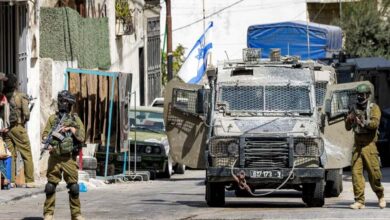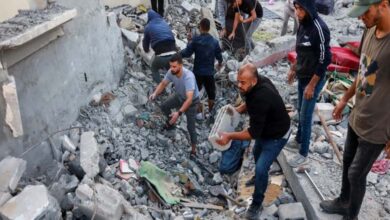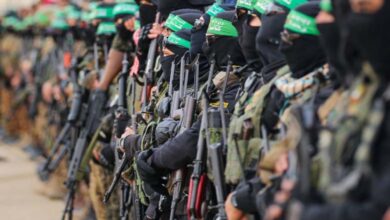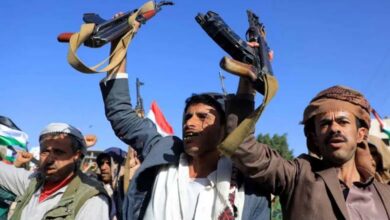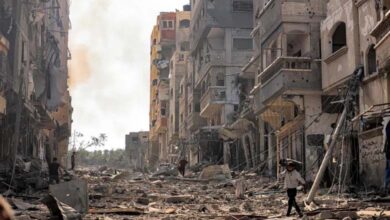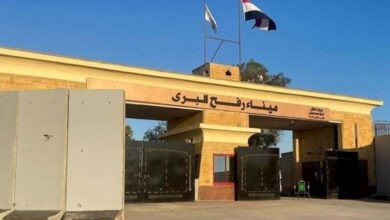Call for an international coalition against the Houthis: Experts stress collective action as essential for deterrence
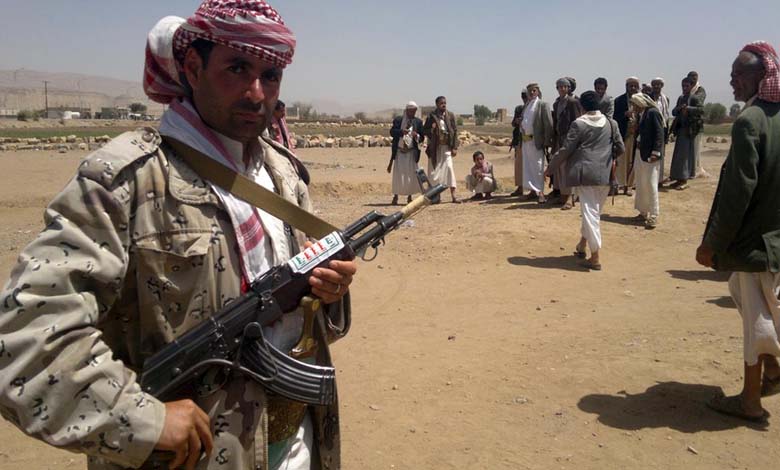
Following the failure of strategies aimed at “containing” the ongoing Houthi threat, the prospect of establishing an international military coalition to deter the militia is increasingly viewed as a necessity.
This demand was voiced by Yemen’s legitimate leadership at the United Nations, in an effort to push the international community to redefine the Houthis as an existential terrorist threat requiring a comprehensive and direct military response.
-
Dark Alliances: How the Muslim Brotherhood and the Houthis Deepened Yemen’s Humanitarian Crisis
-
Targeting the administrative front: painful scenarios for the future of the Houthis
In his address to the UN General Assembly, Presidential Leadership Council President Rashad Al-Alimi stressed that defeating the Houthis is no longer merely a domestic concern but a global imperative for stability.
“It is time to launch an international coalition that will free Yemen from terrorism, rebuild its national state, and shield the region and the world from an escalating cross-border threat,” Al-Alimi declared.
He underlined that decisive and collective action is now required to “impose peace” in Yemen, pointing out that “containment policies have granted the Houthis time and resources to expand their military arsenal.”
This call comes one year after the Presidential Council approved a “comprehensive deterrence strategy” built on three pillars:
-
Houthis follow al-Assad’s footsteps: Funding warfare through the Captagon trade
-
Houthis escalate by targeting any company trading with Israel
- a domestic component represented by the Presidential Council,
- a regional component embodied by the Arab coalition,
- and an international component through the establishment of a global coalition against the Houthis.
-
750 Tons: Massive Iranian Arms Shipment Bound for Houthis Intercepted
-
Houthis Escalate Targeting of Religious Institutions: Abduction of Imams and Closure of Quranic Centers
A critical timing
According to Yemeni political analyst Omar Hassan, Al-Alimi’s call for an international coalition came “at the right place and at a critical moment.”
He explained that addressing this request from the platform of the UN General Assembly was strategically sound, while the timing was “sensitive,” as the international community is increasingly exasperated with Houthi actions.
The call also coincides with growing international momentum toward tougher measures against the militia, starting with sanctions and naval blockades, and potentially advancing toward the military confrontation sought by the legitimate government.
-
Clashing Interests Outweigh Cooperation… Why Did the Houthis Kill a Prominent Muslim Brotherhood Leader?
-
Houthis and the Muslim Brotherhood share sabotage roles in Aden… Details
Hassan added: “The call seems to leverage the evolving international stance toward the Houthis. The Yemeni government and the Presidential Council appear to sense these signals and are pushing the world to act in support of Yemen at this juncture.”
He further observed that “there is now a widespread international conviction that pursuing peace with the Houthis is a futile option,” stressing that the world “is increasingly turning to instruments of power in dealing with the group, especially after its cross-border and Red Sea attacks.”
For this reason, the Presidential Council sees a favorable window of opportunity and seeks to rally international support for a military coalition that would assist Yemen in regaining its sovereignty.
-
Are the Houthis Risking the Ceasefire Agreement with Washington to Support Iran?
-
Has Mossad Penetrated the Houthis’ Operations Room?
Backing legitimacy
Dr. Abdelkader Al-Khuli, professor of political science at Taiz University, said that “building an effective international coalition involving major powers such as the United States and the European Union, alongside Arab states, would pave the way for Yemen’s liberation, enforce regional peace, and corner Iran.”
He stressed that such a coalition would provide “military support, specialized training, and advanced weaponry to the Yemeni government, enabling it to secure its coasts and reclaim territories and institutions seized by the Houthis.”
According to him, an international military coalition would also “enhance the security capacities of the legitimate government, restore public confidence in state institutions, revive oil and gas exports, and deter Houthi aggression.”
Furthermore, it would “strengthen the Presidential Council’s international diplomacy, expose Houthi violations worldwide, and bolster unity within Yemen’s internal front — a key factor for achieving lasting peace.”
-
The Muslim Brotherhood Crush the Last Line of Defense Against the Houthis… and Open a New Front Against Marib’s Tribes
-
Houthis’ Opening of a Vital Road Between Sanaa and Aden Reflects a Tactical Shift
-
Houthis Impose Naval Blockade on Haifa Port
-
The ceasefire with the Houthis was not an American concession, but the result of Houthi setbacks


